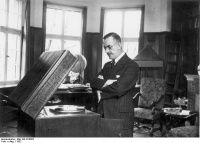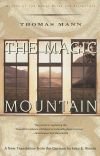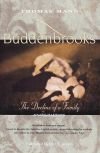
Buddenbrooks, first published in Germany in 1900, when Mann was only twenty-five, has become a classic of modem literature -- the story of four generations of a wealthy bourgeois family in northern Germany. With consummate skill, Mann draws a rounded picture of middle-class life: births and christenings; marriages, …
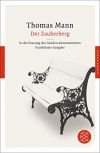
This European masterpiece from the Nobel prizewinner explores the lure and degeneracy of ideas in an introverted community on the eve of World War I. Hans Castorp is 'a perfectly ordinary, if engaging young man' when he goes to visit his cousin in an exclusive sanatorium in the Swiss Alps. What should have been a …
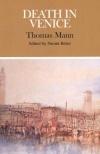
The world-famous masterpiece by Nobel laureate Thomas Mann -- here in a new translation by Michael Henry HeimPublished on the eve of World War I, a decade after Buddenbrooks had established Thomas Mann as a literary celebrity, Death in Venice tells the story of Gustav von Aschenbach, a successful but aging writer who …

Doctor Faustus is a German novel written by Thomas Mann, begun in 1943 and published in 1947 as Doktor Faustus: Das Leben des deutschen Tonsetzers Adrian Leverkühn, erzählt von einem Freunde.
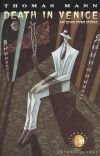
Death in Venice is a novella written by the German author Thomas Mann, first published in 1912 as Der Tod in Venedig. The work presents a great writer suffering writer's block who visits Venice and is liberated, uplifted, and then increasingly obsessed, by the sight of a stunningly beautiful youth. Though he never …

"Death in Venice," tells about a ruinous quest for love and beauty amid degenerating splendor. Gustav von Aschenbach, a successful but lonely author, travels to the Queen of the Adriatic in search of an elusive spiritual fulfillment that turns into his erotic doom. Spellbound by a beautiful Polish boy, he finds …

Recounts the enchanted career of the con man extraordinaire Felix Krull--a man unhampered by the moral precepts that govern the conduct of ordinary people.

A title in the Bristol Classical Press German Texts series, in German with English notes, vocabulary and introduction. Thomas Mann (1875-1955), was awarded the Nobel Prize for literature in 1929, and "Tonio Kroger" occupies a central position in his spiritual and artistic development. A study of youth, it draws …

 English
English Español
Español Deutsch
Deutsch